I DON´T QUITE KNOW HOW TO SAY THIS
I DON´T QUITE KNOW HOW TO SAY THIS
by Norman Warwick
We like to think at Sidetracks & Detours that we are up to the minute and part of the moment. To be honest, though, that is usually more by luck than judgement. Just as I was about to post this piece with the paragraph below as its opener I noticed a tiny little flag planted page 75 of The Mail On Sunday, indicating a programme on Radio 4 at 4.30 pm, a couple of hours from now. The programme will be the first in a four part series presented by Catherine Harvey who today travels to Blackpool. She is not going for a stroll along the prom tiddly om pom pom, with its gaggles of girls wearing hats bearing the legend ´Kiss Me Quick But Please Keep your Mask On.´ Instead she is promising to sample the sights and sounds of the annual festival dedicated to dialect speaking and writing. So, let´s hop on the famous Blackpoll Belle and we might just get there in time.
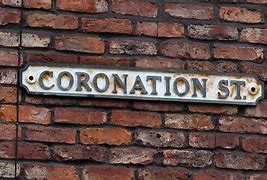
Even as a young child, although I had no notion of dialect or even what the word meant, I was struck by the differences in the way people spoke. Whenever I went to stay with my gran in the summer holidays it would always take me a couple of days to pick up some of the vocabulary and pronunciation, which I now know was quite localised along a particular stretch of the A64. Back in my new home in Lancashire, where the A58 was disguised as a cobbled Coronation Street I had become entirely used to a new way of speaking (and hearing).
As a carefree kid, though, scoring ´worldie´ goals in Cup Finals played every night in the cul de sacs on Auster Bank, in Tadcaster, I never really gave any of this any thought. As I became old enough to take an interest in professional football as a fan, I suppose, I became able to differentiate between a Geordie accent, with all its Howay The Lads and Blaydon Races, and the scouse sound of in My Liverpool Home and the strangely stretched and somehow sad sounds of the midlands clubs. So I could just about recognise that the voices of Newcastle. Liverpool and Birmingham sounded different and distinctive but I couldn´t distinguish between The Geordies of Newcastle and the Mackens of Sunderland.
However, although I could recognise the difference between the sounds I heard at Liverpool´s Anfield or at Man United´s Old Trafford I could not distinguish between Liverpool and Tranmere, situated just across the Mersey from each other, whenever the latter played at Bury. Furthermore, there didn´t seem to be any difference between dialects from Bury or Manchester, which were, after all, six miles and three leagues apart !
As for the midlands accent I couldn´t tell any difference between Birmingham City, Aston Villa, West Bromwich Albion or Wolverhampton Wanderers, my duck, or was that Nottingham?
So, with such a seemingly ´tin ear´, and not a great sense of geography I was glad I had learned so much history from my dad. Of course I later discovered that the useful gift he wrapped up as History was in fact the far more exciting (and just as useful) gift of myth, legend, fable and story-telling all rolled into one. How they have stood me in good stead.

Back in the barefoot days, though, I believed every word dad told me whenever we stopped on our walks in Tadcaster, always on the same spot of pavement that was the very apex of the medieval road bridge over The River Wharf. Dad would point down into the swirling waters some fifty feet below: This is where the river ran red with blood during the wars of the roses.
I was only five or six years old maybe, but already I knew that the wars of the roses had been fought between our county (of birth for my extended family) and their county, of Lancashire. Quite who they were I never really found out, even after dad took the family to live in Lancashire when he completed some high profile football style transfer from Sam Smith´s Tadcaster Ales to Boddington´s ´Pride Of Manchester.
It would still be several years before I learned that dad had perhaps been colouring his stories a little too vividly. We studied the Wars of The Roses in History and I learned that the wars were not fought over some horticultural disputes about a preference for red (in Lancashire) or white (in Yorkshire.) Nor were any battles ever fought over the fact that we all talked a bit different(ly). I learned, somewhat sketchily, that The Wars Of The Roses were actually an on-going intermittent war between two families that each perceived themselves as of Royal lineage. To be honest I never acquired any deeper knowledge of, or awareness of, or interest in, a fight that hasn´t been fought for centuries now, apart from odd skirmishes in cricket.
However, Donald Trump might have to be hired to build a wall across the Pennines before the next football season starts, now Manchester City and United fans, already narked at the upstarts from Sheffield United, are likely to be forming platoons to repel infiltration from Leeds United too.
So given all that, I was puzzled by a question and answer headline above a brief article by Steve Doughty on page five of today´s edition of The Daily Mail, Thursday 17th July 2020.
Were The Wars of The Roses In Vain the headline asked and stated, as if in answer to that question: Northern Accents Now Sound Alike
I was a bit surprised about what seemed a certain levity on the matter. After all, having ´studied´ diction and dialect and accent in a university module when I was fifty years old, I had been staggered when Professor Clive Upton, after hearing me speak in the first seminar, was able to tell what town I had been born in, what town I now lived in and was then able to tell what side of Nursery Road I had live on In Prestwich during the five primary school years I had lived there.
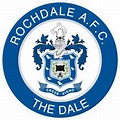
Also I had lived a period of thirty five years in Rochdale, a town which takes dialect and the notion of the home town it represents very seriously. The town is the home of The Edwin Waugh (pronounced Woff) Dialect Society (EWDS). Edwin was a dialect speaker, writer and poet who wrote titles like Come Home To Your Children And Me in a dialect that somehow lent sympathy and empathy and gravitas to those words. In any Venn diagram created over the last forty odd years there would be a small, but significant, overlap between the circle of those who performed in or attended Rochdale folk music clubs and the circle of those who performed at or attended at EWDS, and I am, with the likes of Michael Higgins, Robin Parker, Sid Calderbank and singer Alison Brailsford, and ukelele player Maureen Harrison amongst them.
Michael is an occasional contributor to these pages, and keeps us up date with what is going on at the Society he now helps run.
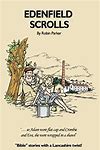
Robin Parker, a Rochdale fella through and through despite being born and brought up, I think, within the sound of bow bells, is the author of a book called The Edenfield Scrolls, which imagines some Bible stories relocated to his part of Lancashire and re-told in an appropriate dialect. That book was recorded on to cd format by Sid Calderbank a ubiquitous figure at folk events in the area.
Alison is a great vocalist and delivers owd dialect songs as if they are hymns to the universe but sadly I have never acquired their real understanding of the power of dialect, and its strength to bend like a willow tree to the winds of time. Dialect continues to change, to shed and to bloom.
Mr. Doughty, on his Daily Mail strap line as Social Affairs Correspondent, was reporting on findings that accents ´from´ the North are changing so much that inhabitants of Yorkshire and Lancashire now sound alike and are merging into what researchers suggest is a single ´general northern´ pattern of speech. This announcement, Doughty says, could bring Blackpool Tower tumbling down and even start the late Fred Trueman to cussing and chunnering as if Jimmy Binks had just dropped a catch off his bowling during a war of the roses cricket match !
The reporter tells readers of The Daily Mail that speakers from either side of the hills are still distinctly Northern in sound, and he calls up the short vowel sounds of a word like ´glass´ for an example of what he means However, those academics from Manchester University involved in the study say that an ´educated, urban and northern´ way of speaking is developing. During some of the experiments developed to aid the survey, ´listeners typically have struggled to distinguish between the accents of people from Manchester, Leeds and Sheffield´.
However, the report did find that the sound of people from Liverpool and Newcastle remains distinct and can be easily distinguished.
For those who fear for the survival of dialect there does remain some hope. There has been found ´some subtle differences between the pronunciation of vowels in different cities that were either previously unknown or that had not been recognised´.
Manchester University, to clarify this, perhaps, told Mr. Doughty that ´individual cities still sound a little different, but the way they differ has changed.´
Researcher Dr. Patrycja Strycharzuk is quite excited at these discoveries.
´It might seem as though local accents are dying out, but we believe what we are actually seeing is a new variety becoming established,- educated, urban and Northern.´
That all sounds a long way, to me, from The Mancs of Oasis. Two out of three of those soubriquets certainly don´t spring to mind when I hear Don´t Look Back In Anger.
If accents and dialects are naturally merging will that, I wonder, make for better channels of communication.
If it is factually accurate, rather than urban myth, that at one time more than three hundred pronunciations of the word ´home´ were recorded along the eleven miles between Bury and Bolton, few of which would have been recognisable in Rochdale, eleven miles in the opposite direction, what is to be gained, other than the quaintness of antiquity, by seeking to preserve them, as The Edwin Waugh Dialect Society do?
According to Wikipedia there are more than seventy clearly identified dialects in the UK, which seems still somewhat on the low side to me. Considering the variations that exist on one particular word over a short distance as identified by EWDS I would have expected more, but would it matter if we all spoke with the same tongue? Will Emerdale, Holyoakes, Walford and Wetherfield suffer if there is no ´put wood in th´ole, alright der´lar, leave it aht you slag, or áppen it´ll turn out nice agen.?
By the way, these dreadful efforts at writing in the vernacular do point up one difficulty of working in print in dialect. Nevertheless, had I been asked only a short while ago about the preservation or elimination of dialect I would have probalbly just said I don´t have a dog in this fight.
But the more of this news I digest, I realise that somehow it does matter to me. Without ever voicing the emotions I realise I have always enjoyed accents, I feel defined (very precisely so by Professor Upton) by my accent and I´m quite proud of that. I love the fact that not only are there more than hundred ways of saying the word home, but there are also scores of words we can employ to convey the meaning of home. I also remember feeling pretty miffed when my primary school headmaster (who moved up to our school In Prestwich from Kent) shouting at us angrily about our glottal stops and told us he was fed up of hearing us say things like wo´a lo´o´dir´y bo´´les or you could pu´ a bi´o´bu´´er on i´ !! I must have been too young then to articulate why I hated phrases like The Queen´s English, but I still hate it and I still don´t understand why.
Am I right to fear that a merging of dialects is in fact a dilution of our language, and what does such a dilution in the language still in service to us and that we can speak, do to our arts? It is through our vocabulary, language and dialect that we tell our stories, that we turn history into myth and back again. Listen again to how many different accents and voices you hear in Shakespeare.
Surely if a spoken dialect fades away so will that language fade in print?
Whether or not these are valid fears is a question we should perhaps ask of someone like our occasional correspondent, or as The Daily Mail would label him, Social Affairs correspondent, Michael Higgins.
So, Michael has dialect got ´trouble at t´mill´ or is it all gonna be reet?
Well, what can I say? I wasn’t aware that all the northern patois were merging but then I am not a wide traveller these days except annual trips via Helmsley and Loftus to Whitby to refresh our North Riding words. And last spring’s abortive trip to the Lakes (Cumberland/Wesmorland). And the odd foray into Saddleworth and Todmorden (the former West Riding and the latter Lancashire) of course, but they hardly count, as they talk ‘border talk’.
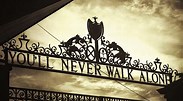
Occasionally I get to Liverpool where the inhabitants still mix the old Welsh guttural ‘ch’ with the expat Irish sound. I have read this is a development from Victorian times when Lerpwl as the Welsh call it was a mixing pot of both nations. My wife is a Liverpool lass and can put it on very well. But she hates my pet name ‘Mick’ because of the way it would be pronounced by her fellow Scousers. My dialect by- name is Mick o’ Bills (Michael son of William).
The trouble with travelling is that others do it too, and in holiday places a lot of ‘off-comed-uns’ gather to speak their commingled chatter. Unless you frequent the local venues you miss the authentic voice of the genus loci.
All I can say is that Sid Calderbank (bred and residing in Chorley, or as it is pronounced there ‘Chorla’), speaks Lanky a lot differently from me with my Oldham area speech. And I have lived abroad where it was weakened, to return and pick it up most of a generation later. Fortunately for me my first job back in Oldham was at Tesco´s where the staff were obstinately proud of their ‘Well awl go to ‘t back of our stairs’ and / by ‘ecks’. I do remember when I was a boy here everyone spoke a bit like Coronation Street characters today with a ‘gerrin owd’ rather than a ‘gettin’ which is more usual today. But then the Queen’s English or Standard has changed a lot. And now we have that jarring ‘Estuary’ speech daan saath.
We also have Manc which seems to be creeping up farther this way. I am told by lifelong dwellers here at least my age that it was not known in their day so that Middleton and Failsworth were pure Lanky save for subtle accents of their own. So, how new is Manc with its ‘me bruvva’s’ instead of our ‘Mi bruthers’?
Yes, dialect can be a form of amusement and local identity and if only it survives in our odd words and expressions that identity can be enhanced and enjoyed all the more.
I can see the road signs now; Welcome to Ratchda’, th’ome o’ Gracie Fields’. Or ‘Th’art speedin’ mon, slow thi deawn’.
As for the Wall, this was brought up at a recent Off the Rails gathering where Chorley versifier and xenophobic Lancastrian known as Scowie (Keith Schofield I think) often wears a Tee shirt parodying Trump: We’re gonna build a wall- and we’re gonna make Yorkshire pay for it!
Michael´s interesting response above, with its inclusion of so many dialect words and phrases, stirred a vague memory I had of a study undertaken on the Bolton accent, (a town twenty miles up the road from where Rochdale EWDS meet, and with Bury slap bang in between the two, with all three towns having a proud heritage of their own ´language´). A quick search-engine challenge confirmed my suspicions, even if I was staggered to learn from an on line Bolton News article that this had all happened nearly twenty years ago, in 2002.
The newspaper at that time announced that Dictionary publishers, Collins, were keen to hear from people around the country about regional dialect.
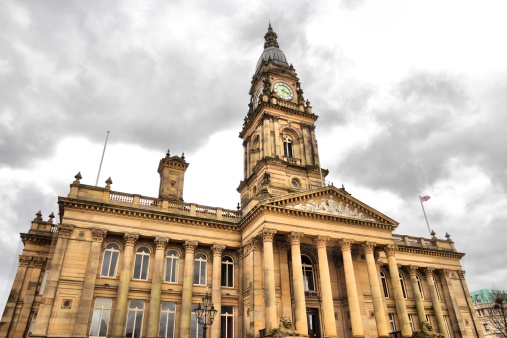
They wanted to include much-used local words and phrases in a new edition. But, how could Bolton residents contribute? And was dialect still important in 2002? The paper´s reporter, Angela Kelly, investigated, and wrote that ´Bolton talk, Lankyspeak, local dialect — the way we speak is a vital part of our culture. So it is entirely right and proper that Collins should want to include words which have passed into the local language over the years in the next edition of their famous dictionary´.
Angela, in speaking about the mee-mawing of the mills (the expressive sign language necessary to carry on conversation over the deafening sound of the looms) to casual conversation in Bolton’s pubs, our “language,” reveal how we each have an individual and rich way of saying things.
´It’s not just a twang´, she wrote. ´There are words and phrases specific to the Bolton boundaries. They have real significance here. They belong here.
Like the mee-mawing, they reflect life as it has been lived for decades. And they allow local folk to converse with ease — no language tape necessary, but woe betide “foreigners” who question the meaning of words´.
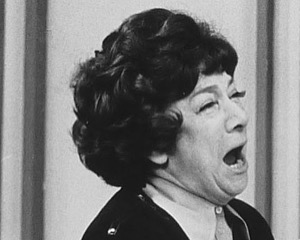
She pointed out that Bolton-ese even cropped up on national TV and radio, courtesy of entertainers like Peter Kay, Sara Cox and Vernon Kay. One of the first people to showcase the peculiarities of the Bolton vocabulary, she reminded us, was Farnworth’s Hylda Baker, who brought local words and phrases national recognition through music hall and TV. (good for Angela, by the way: ´she knows yer know !´)
Their accents and — to some extent — language would still not sound out of place in a town centre bar or at the checkout in Asda at Astley Bridge.
But you don’t hear people described as ´mithering´ (bothering, irritating) in Southend. Or that someone’s ´gorra gate´ doing something (got into the habit of) in Edinburgh.
´That’s the beauty of local dialect,´ Angela was told by local dialect expert Ernie Ford.
Born and brought up in Westhoughton — which has a language all of its own, some would argue — he has always been fascinated by the way we speak.
Then, already ´a senior and a bit more´, he was writing poetry and stories in dialect and believed it is as relevant at that time as it ever had been.
´Dialect is as much a part of local history as any building, and it deserves to be cherished,´ he stated.
´Dialect changes so much, even within a few miles. Like in Westhoughton, for example. It’s only a few miles down the road from Wigan, but here we say ‘He were going to town’ and there they say ‘He wuzz going to town’.´
So, was it a step in the right direction by Collins to chronicle these very local words and phrases, wondered Angela.
´Oh, aye,´ insisted Ernie. ´It’s important to keep it going. The language is part of us. It’s not like the way they speak in Liverpool or Blackburn. It’s all about how we live. You could tell a joke in standard English and it might not raise a laugh. But put it into local dialect, and it’s reet funny!´
I wonder whether the submissions to Collins nearly twenty years ago might have predicted these findings of the university field studies. Of course, we all as speakers, change languages but it is perhaps important to remember, that in subtle but significant ways, language changes us, and even contextualises in our times, itineraries and locations.
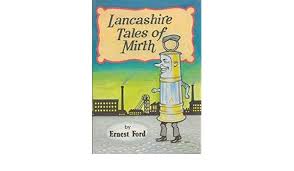
Dialect lends colour, and sometimes joy, to our conversations and the frightening prospect here is that if dialect is allowed to die, then the late American singer / writer, the wonderful Warren Zevon, might be proved right in his observant song title that there is now only Heartbreak Spoken Here, and there are Werewolves In London !




Leave a Reply
Want to join the discussion?Feel free to contribute!